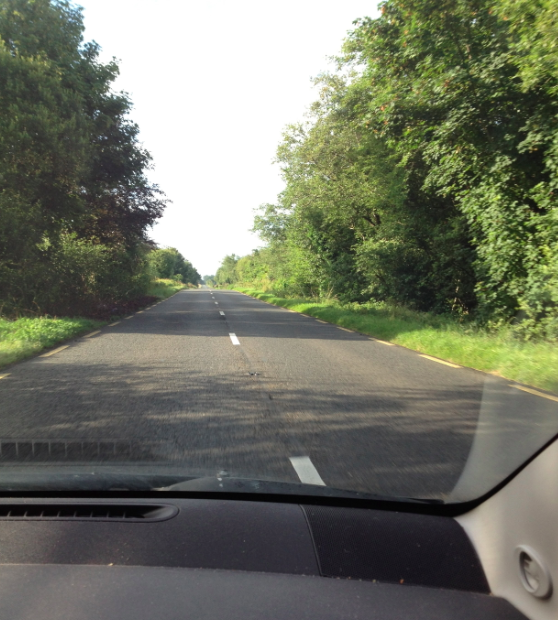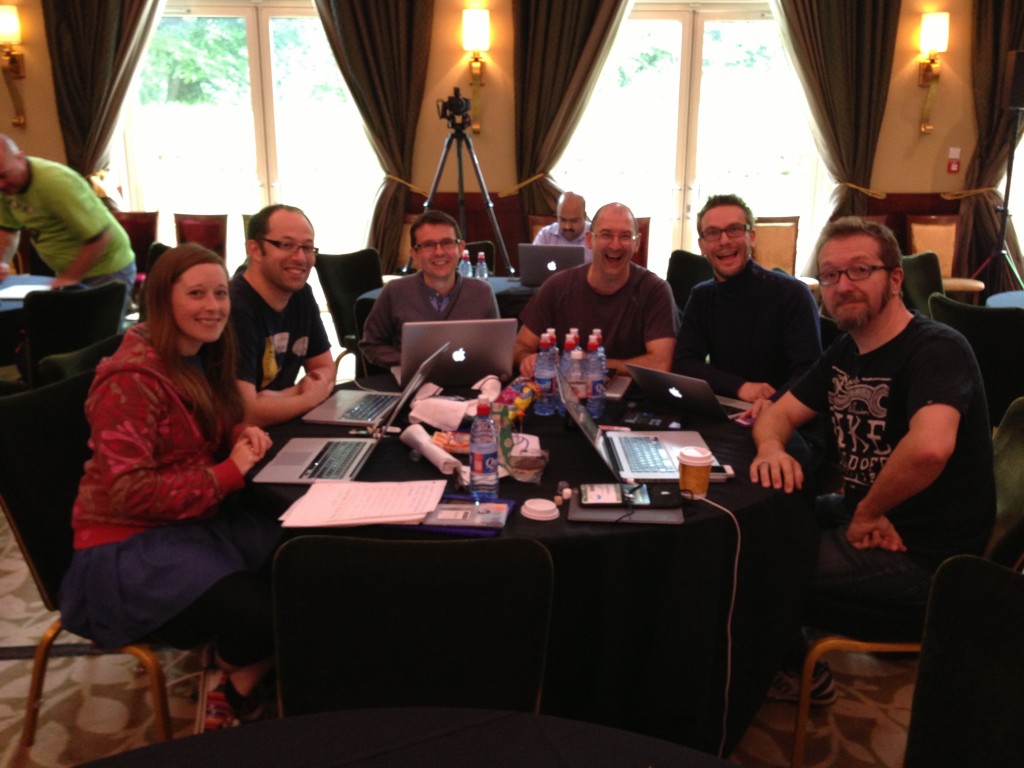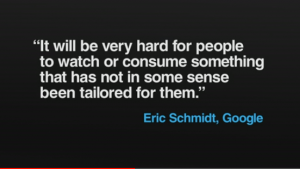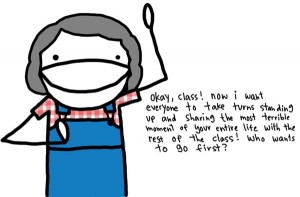 I’ve been aware for a while of the dangers of walled gardens on the internet. Basically this means that an online platform (like facebook, twitter, youtube, iTunes etc…) keeps you within their ‘walls’. They try to discourage you from leaving their ‘garden’ and to control what parts of the internet you have access to.
I’ve been aware for a while of the dangers of walled gardens on the internet. Basically this means that an online platform (like facebook, twitter, youtube, iTunes etc…) keeps you within their ‘walls’. They try to discourage you from leaving their ‘garden’ and to control what parts of the internet you have access to.
This can be done for very good reasons, for example to protect children from accessing porn. In schools, filters are often used so students won’t be exposed to ‘inappropriate’ material when browsing the web but filters also function to stop students from accessing facebook when they should be doing something else that’s (presumably) more ‘educational’!
However, creating ‘walled gardens’ on the internet is also a way of making money. If you are a big company like Google (who own youtube), facebook or twitter and you can prove to advertisers that your users don’t regularly navigate away from your site or keep returning repeatedly to your site, you can charge companies more money to advertise in your ecosystem.
Facebook isn’t a traditional ‘walled garden’ because within your feed, links to other websites are ubiquitous. However, the social nature of facebook gets you to return again and again to this feed meaning that you spend a lot of time in their garden. It might help instead to think of facebook as a walled garden with lots of windows.
So how does it work? Well, the more I feed my feed, and the more my friends feed their feed, the more time all of us spend in that facebook garden, being targeted by ads aimed directly at us personally. Facebook knows your age, interests, education level, profession, location… it knows because you and I freely gave them this information and now they are using this information to sell us stuff that they think we might like to buy. Change your status to engaged and watch the ads for wedding venues in your location pop up. Put a new baby announcement up and watch the adds for nappies appear almost instantly. It’s all a bit creepy but we’ve all agreed to the terms and conditions (which they keep changing) and we’re all addicted to connecting with and/or spying on our friends, families, colleagues and acquaintances. So are we all going to en-masse delete our facebook accounts? Somehow I can’t see it happening.
Like me, you’ve probably noticed that your facebook feed has recently become clogged up with ads (it’s so infuriating! If I see one more ad for Candy Crush I will scream!). That’s because most of us were simply ignoring the ads down the side and if we ignore the ads, facebook can’t make as much money from selling advertising space. They also know it’s harder for us to ignore something in our feed. We start reading it before we realise that it’s not something one of our friends posted, it’s an ad. And if the ad is well enough targeted at our interests, obsessions, insecurities, our interest might be piqued, we might click on it anyway even though we know it’s an ad.
What’s even odder is how facebook want us to start advertising ourselves to our friends. The new and weird notion of paying to promote a post makes me feel a little sick inside. Imagine being so desperate to get your friends to pay attention to you, that you pay money to pop up at the top of their feed? I mean, I can understand why businesses might take advantage of opportunities to advertise on facebook but regular people paying money just so that people bother to read their facebook posts? I’m sorry, that’s just sad. Sad pathetic AND sad tragic that someone might be so lonely that they would resort to this to get people to interact with them. It’s sad and wrong to exploit people’s insecurities and narcissism in this way.
Of course it’s not just facebook who are targeting us, google, youtube, twitter, instagram and amazon are at it too. If these companies can make us regular users of their service, we might at some stage ‘pay’ for premium features and, if they succeed in making us addicted to the service they provide, we the users will tolerate ads because we want to watch youtube videos, or see what our friends are up to on facebook, or take funky looking pictures or whatever it is that we like to spend our time doing online. The more time we spend online (and remember, time is money people!) the more money can be made out of us. We’re having a great time, sure, but we’re like worker bees in a hive who don’t even realise they’re working. Or who they’re working for. Or how they’re being exploited.
Another way in which we ‘pay’ for space online is when we want to sell something. If I want to upload my music onto iTunes and sell it, that’s no problem, but I must first agree to give 30% of each sale (not 30% of profits) to Apple in exchange for permission to sell my product in this online shop. It’s not unlike renting a shop space I suppose, it’s just a very small virtual space! It makes it harder for me to make any profit because presumably it has already cost me money to create the music (recording studio, mixing, session musicians, vocal coaching!) and now it’s going to cost me money to sell it as well. That’s always been the case I suppose; it’s just that record companies used to spend the money on advertising and selling the music. Now many of those who want to sell their music online do all the advertising and promotion themselves whilst also paying a large chunk to the virtual shop which is selling their product.
Don’t get me wrong, I think online entrepreneurs have a lot to offer. Lots and lots of websites, big and small, use a ‘freemium’ model. This basically means that they give away lots of free content but they keep some content in reserve that you have to pay to access or purchase. Online “cottage industries” have popped up all over the place; small family-run websites that want to sell something. They make their money and pay the wages of the people who run the website if and when we, the public, buy things. On the one hand there’s nothing particularly wrong with this. Just like you have free will when you walk into a shop in deciding whether or not to spend any money, you also have that discretion on the internet. So if you buy the only thing I’m selling off this website, which is my poetry podcasts, you are paying extra for ‘premium’ content. That’s your choice, but if you don’t want to spend any money, you can just browse the free content to your hearts content.
In fact, in one way the internet has an advantage for users here. If you browse a shop for a few hours, the shop assistants will probably get a bit pissed-off with you and possibly even suspicious. By contrast, because no-one is judging you for only using the free stuff online, you can do what most people do and ignore the bits of the website that ask you to spend money. One potential downside of this is that the website might shut down because they can’t cover their costs. This often happens with smaller sites because they don’t really make any money from advertising so no sales means they are out of business! It’s not unlike the small corner shop disappearing because Tesco can offer better deals by buying in bulk and the little guy just can’t compete.
Take it from me, making money from ad boxes on your site is really difficult. Unless people CLICK on the ad, you don’t get any money at all from hosting these ads on your site. Each click gets you a few cents, maybe 20c per click. If you just sit at your computer clicking the ads on your own site, there’s an algorithm which will detect that all the clicks are coming from the one computer so you don’t get any money from this behaviour. That’s why I’ve kept ads on my site to a minimum – they’re not making enough money to cover the cost of hosting the website anyway and they just piss people off.
A more serious downside of the freemium model exists however, particularly when using sites which rely on user-generated content. You are basically giving your content away for free but someone else is making money from your effort. The more content you provide (videos, photos, comments etc.), the more money the ‘big bad corporations’ make. In many ways you are working for them for free!
That’s the biggest difference between a small scale online business and a massive online social network. The small internet entrepreneur isn’t asking you for anything in return. They don’t expect you to contribute content. If you like what you see, you can buy it, but generally speaking, they’re not using you to make money. The big companies ARE using you to make profit. You do get something in return (to use facebook or youtube or whatever) but in return for this ‘space’ to host your content, you do pay a price. You encourage people to visit this content (or they are inherently motivated to visit it because they are nosy and want to read about your life on facebook and see videos of your cute kid on youtube) and you thus become like a virtual sandwich board for that site. Don’t assume this is a particularly new phenomenon – it’s not unlike walking around with a massive Nike logo on your t-shirt.
I’m not saying there’s nothing in it for you – if there wasn’t you wouldn’t use the site. But please don’t be naive. At the CESI 40 conference recently Professor John Naughton used a clever analogy to explain it. He stated that if you use ‘walled garden’ systems and social networks, you are in many ways like a sharecropper. In return for some virtual ‘land’ online, you are paying a ‘rent’ of sorts. You are attracting ‘tourists’ to their site through your content but you’re not getting paid any money, you are just being paid in kind by being allowed to use that virtual land as you see fit.
This is what happened to freed slaves after the American Civil War. Legally they had to be given a salary for their labour but, once they had paid back the rent they owed for the land and shack that was on it, plus the cost of seed to plant, there was very little, if any, profit in it for them. Many of them ended up working for free. They got trapped in a cycle of working, working, working, but never really seeing the fruit of their labours, never really escaping their slavery in anything but name.
How frustrating that must have been; how frustrating that is. Many try to convince us that we just need to be ‘better’ at what we do, that the market will reward the best and the brightest who develop a following of their own (think of the people who spend their lives being paid to create youtube content but remember also that youtube get a big slice of the action). I heard this referred to recently as ‘darwikianism’ – the survival of the fittest content.
To be honest, I don’t buy it.










